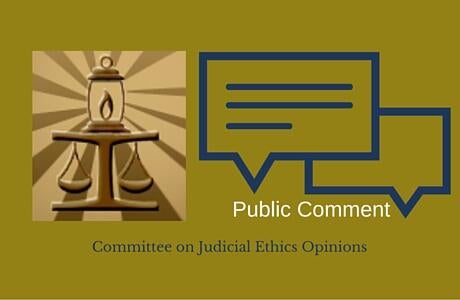Supreme Court Ethics Committee Advises Judges Against Investments in Marijuana Enterprises
SAN FRANCISCO—The California Supreme Court Committee on Judicial Ethics Opinions (CJEO) has adopted a formal opinion advising judges that maintaining any interest in an enterprise that involves medical or recreational marijuana is incompatible with the obligation to follow the law under California Code of Judicial Ethics.
In CJEO Formal Opinion 2017-010, the committee examines state and federal laws regarding marijuana and concludes that holding a financial interest in an enterprise involving the sale or manufacture of marijuana that is in compliance with state and local law is still in violation of current federal law. The committee advises that maintaining any interest in an enterprise that involves the cultivation, production, manufacture, transportation or sale of medical or recreational marijuana is incompatible with a judge’s obligation under the California Code of Judicial Ethics to comply with the law. The committee also concludes that a judge’s disregard of federal law would create an appearance of impropriety and cast doubt on the judge’s ability to act impartially, particularly in marijuana-related cases. Judges are therefore advised against making or maintaining such investments.
 Judge Ken So, CJEO Committee Member
|
"Judges are prohibited from maintaining an interest in a marijuana-related enterprise because marijuana remains illegal under federal law. This opinion explains that investment in businesses that violate federal marijuana statutes is inconsistent with a judge’s duty to follow the law and advises that judges have an ongoing responsibility to discover if their investments involve a marijuana business." |
The committee previously invited the public to comment on this advisory opinion in draft form. The comments submitted with a waiver of confidentiality are posted for public view on the CJEO website. CJEO Formal Opinion 2017-010 contains modifications adopted by the committee after carefully considering the comments received.
CJEO is an independent committee appointed by the Supreme Court to help inform the judiciary and the public concerning judicial ethics topics. CJEO was established as part of the court’s constitutional responsibility to guide the conduct of judges and judicial candidates (Cal. Const., art. VI, § 18, subd. (m)). In making appointments to serve on CJEO, the court selects members of the bench with a strong background in judicial ethics and diverse courtroom experience. The current twelve CJEO members are justices, judges, a commissioner, and a retired bench officer who have served in courts of various sizes throughout the state.
CJEO publishes formal opinions, issues confidential informal opinions, and provides oral advice on proper judicial conduct pursuant to the California Code of Judicial Ethics and other authorities (Cal. Rules of Court, rule 9.80(e)(1)). CJEO acts independently of the Supreme Court, the Commission on Judicial Performance, the Judicial Council, and all other entities (rule 9.80(b)).



